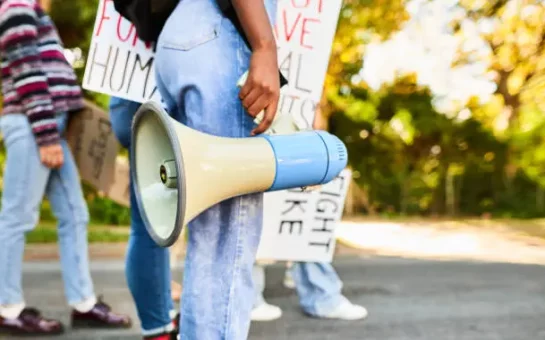Female genital mutilation (FGM) has been illegal since 1985, but there remain concerns about many women, teenagers and young girls in the UK.
FORWARD (Foundation for Women’s Health Research and Development) is an African women-led organisation who work to end violence against women and girls, led by Naana Otoo-Oyortey MBE.
The United Nations General Assembly designated 6th February as ‘International Day of Zero Tolerance to Female Genital Mutilation’, with the intention to amplify efforts to eliminate the practice.
Otoo-Oyortey said: “We have to recognise that FGM happens and affects women in different ways, and for us, the access to services is critical.”
FGM safeguarding approaches were put in place in 2014, seeing FGM protection orders being issued as well as safeguarding training provided in the healthcare and education sectors.
FGM was given special status within national safeguarding in the UK.
FORWARD believe that there is room for improvement in the nation’s safeguarding policies, having found that these procedures had adverse effects on African diaspora communities.
Otoo-Oyortey said: “Singling out FGM from other forms of abuse can be really punitive and stigmatising.”
She spoke of the introduction of Operation Limelight that parents would be visited by police if they sought permission to take their children on holiday, in the fear that they may be travelling under false pretences.
There were even times where families were stopped in airports and questioned in front of their children, she said.
Research conducted by FORWARD in partnership with the University of Huddersfield found that the FGM measures put in place as a result of the government’s Girl Summit in 2014 enabled mistrust and alienation and prejudice toward these communities.
The study conducted in Bristol, commissioned by the city’s council, observed 38 women, men and young people in African diaspora communities, using a Participatory Evaluative Ethnographic Research (PEER) approach.
The ‘Do No Harm’ report, published on Thursday, highlighted an issue with the measure of FGM-specific Mandatory Reporting Duty, a system where health, social care and education professionals have a duty to report known cases of FGM among girls under 18 to the police.
Their research suggested that this reporting duty led to overreactions and unjustified reporting.
Amy Abdelshahid, Head of Evidence at Forward and co-author on the report, said: “FGM is a serious issue that needs to be addressed, but the current safeguarding measures appear to have caused a great deal of harm.
“We need to see sensitive and inclusive interventions; only then will we achieve meaningful process in ending FGM in the UK.”
FORWARD adapted their training and outreach by providing phones and laptop to staff so that they can continue their work from home.
Otoo-Oyortey said: “It’s important for them to know that they’re not alone.”
There are only eight FGM support clinics in the UK, which provide services for non-pregnant women have suffered from FGM, and the organisation provide advocacy for one of these clinics based in Brent.
She said: “We need to understand also sometimes children, there’s also a threat that some of the services that particularly being provided for women are going to be closed, because not a lot of people are not really going for these services in the current COVID-19 climate.
“Having constructive conversations with communities to really get insights around what is happening, what needs to be done, but provide training for professionals.”
FORWARD’s report stated five policy reflections and recommendations for safeguarding measures to become more sensitive and inclusive to victims affected by FGM.
To find out more about FORWARD and to read their ‘Do No Harm’ report, visit their website.

